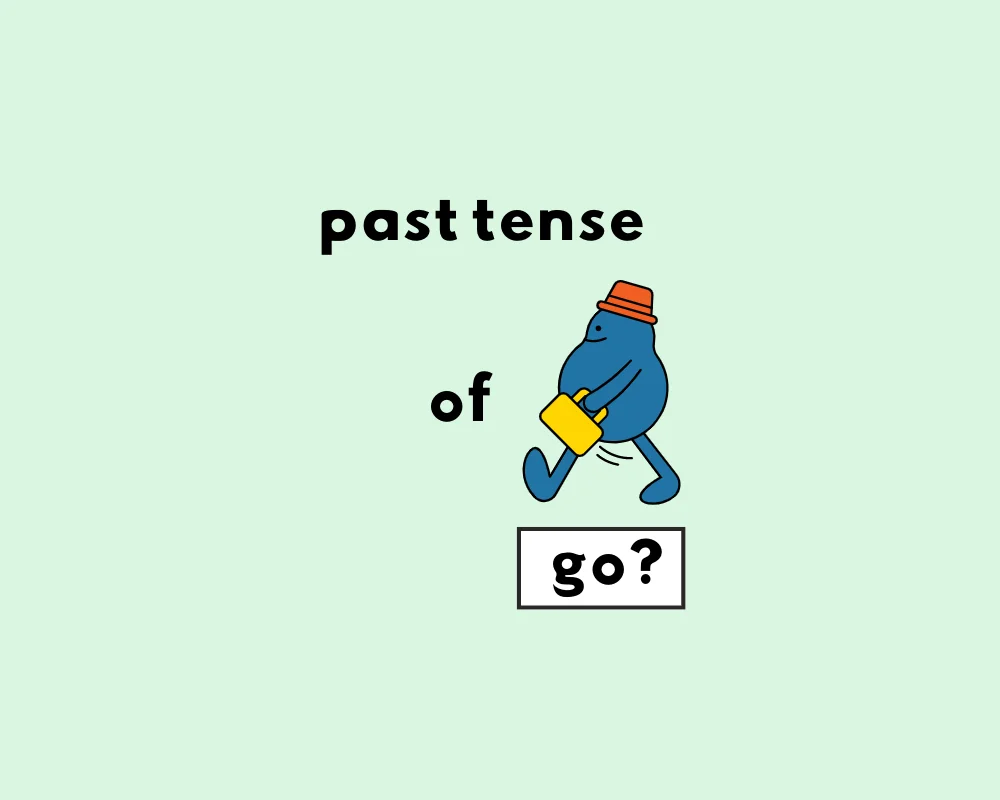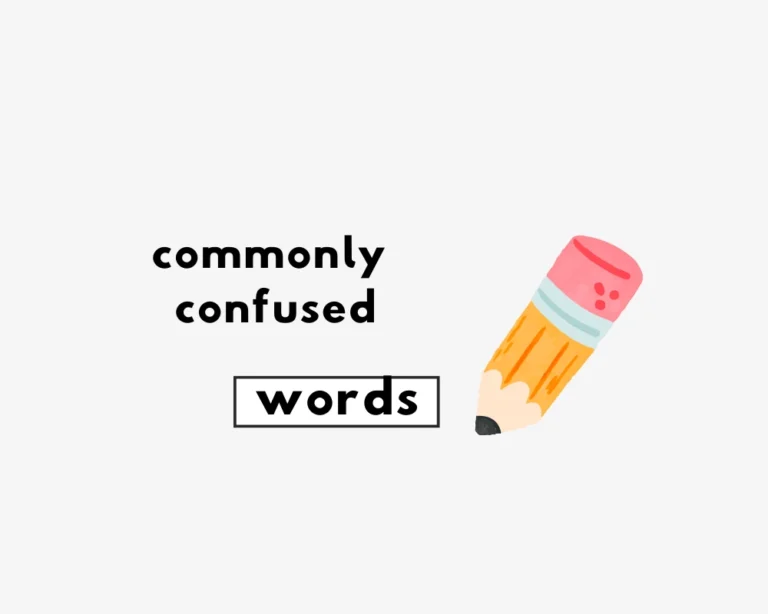
What’s the past tense of go?
The verb go, which describes when we “move or travel from one place to another, (e.g., “I have to go to Rome on business“), is highly irregular in English:
- The present tense is go.
- The simple past tense of “go” is went.
- The past participle of “go” is gone.
Go, and its past tense, went, are entirely different words in how they are spelled and sound. This is why people are so often confused with the verb forms of “go”.
| Tense | Examples: forms of “go” used in sentences |
| present | I have to go to Rome on business. |
| past | She went into her room and shut the door behind her. |
| past participle form | She has gone to see her sister this weekend. |
Forms of the verb “go”
| present | past | future | |
| simple | I go | I went | I will go |
| continuous | I am going | I was going | I will be going |
| perfect | I have gone | I had gone | I will have gone |
| perfect continuous | I have been going | I had been going | I will have been going |
Irregular verbs like “go”
Here’s a chart that illustrates other verbs in English with two past tense forms, like go/went/gone:
| base verb | past tense | past participle |
| go | went | gone |
| fly | flew | flown |
| blow | blew | blown |
| draw | drew | drawn |
| eat | ate | eaten |
| drink | drank | drunk |
When to use “went” vs. “gone”
Compare these sentences:
Past tense: She went into her room and shut the door behind her.
Past participle: I had gone to the store.
A key marker of the past participle form of a verb vs. the simple past tense is the use of an auxiliary/helping verb, such as had/have/has (is/am/are/was/were/be.) The simple past tense, went, does not require an auxiliary verb because went is a complete verb tense.
Participles are not verb tenses per se. Rather, they are forms of verbs and they are used to form the perfect aspect + the passive voice. This means that the past participle uses a sentence object, and an auxiliary verb (as mentioned).
So, remember: participles participate and need a helping verb to function as a whole verb in a sentence. The simple past, on the other hand, does not require a helping verb and can standalone in sentences.
Sentences with “go” (present tense)
It’s a long way to go just to see a couple of reefs.
Could you go and get me a towel?
I have to go to Rome on business.
Are you going home for Christmas? (present continuous)
Don’t go charging in there!
Sentences with “went” (past simple)
The weather was pretty bad when we went to Boston last year.
We went walking on the beach.
I tripped and went tumbling down the stairs.
The car went skidding off the road into a ditch.
She went sobbing up the stairs.
Practice using the verb in different tenses with example sentences to memorize the correct forms.
Sentences with “gone” (past participle)
I’ve gone shopping for the afternoon and won’t be back until later.
We had gone about fifty miles when the car broke down.
She has gone to see her sister this weekend.
She has gone to China
She’s gone to Brazil on vacation.
Phrases with go (or goes)
- What goes around comes around.
- Go without
- Go over
- Go together
- Go after
- Go along with
Origin of go
From etymology online on go (v.):
Old English gan “to advance, walk; depart, go away; happen, take place; conquer; observe, practice, exercise,” from West Germanic *gaian.
Worksheet: conjugations of ‘go’
| Questions | Answer options: |
| 1. The sentence uses what tense: She goes to the gym every morning. |
a. present simple b. past simple c. third-person present singular d. present perfect tense |
| 2. The sentence uses what tense: They’re going to the store right now. |
a. present simple b. past simple c. present perfect d. present continuous |
| 3. Choose the form of “go” to complete the sentence: Yesterday, he _____ to the beach. |
a. go b. went c. gone d. going |
| 4. Choose the form of “go” to complete the sentence: Tomorrow, he ___ to the conference. |
a. will go b. went c. had gone d. will have had gone |
| 5. The sentence is in which tense: She has gone to see her sister this weekend. |
a. present simple b. present perfect c. past perfect d. present continuous |
| 6. Choose the form of “go” to complete the sentence: He _______ on a long trip next summer. |
a. will go b. went c. will be going d. will have had gone |
| 7. Complete the sentence: I ___ the library every day with the kids. |
a. will go b. go to c. will be going d. will have had gone |
| 8. Complete the sentence: She ____ to the mall with Sarah. |
a. goes b. gone c. will go d. went |
Read about other irregular verbs!
- What’s the past tense of spread?
- What’s the past tense of lead?
- What’s the past tense of choose?
- What’s the past tense of fly?
- What’s the past tense of lay?
- What’s the past tense of drive?
- What’s the past tense of draw?
Learn more about verbs
Worksheet
Question 1: Which is most important for proper grammar?
Question 2: Grammar rules help with:
Question 3: What is the main focus of this grammar content?
Question 4: Which is most important for proper grammar?
Question 5: Grammar rules help with:
Question 6: What is the main focus of this grammar content?
Question 7: Which is most important for proper grammar?
Question 8: Grammar rules help with:
Question 9: What is the main focus of this grammar content?
Question 10: Which is most important for proper grammar?
Which aspect is most important when learning grammar?
How can you improve your grammar skills?











